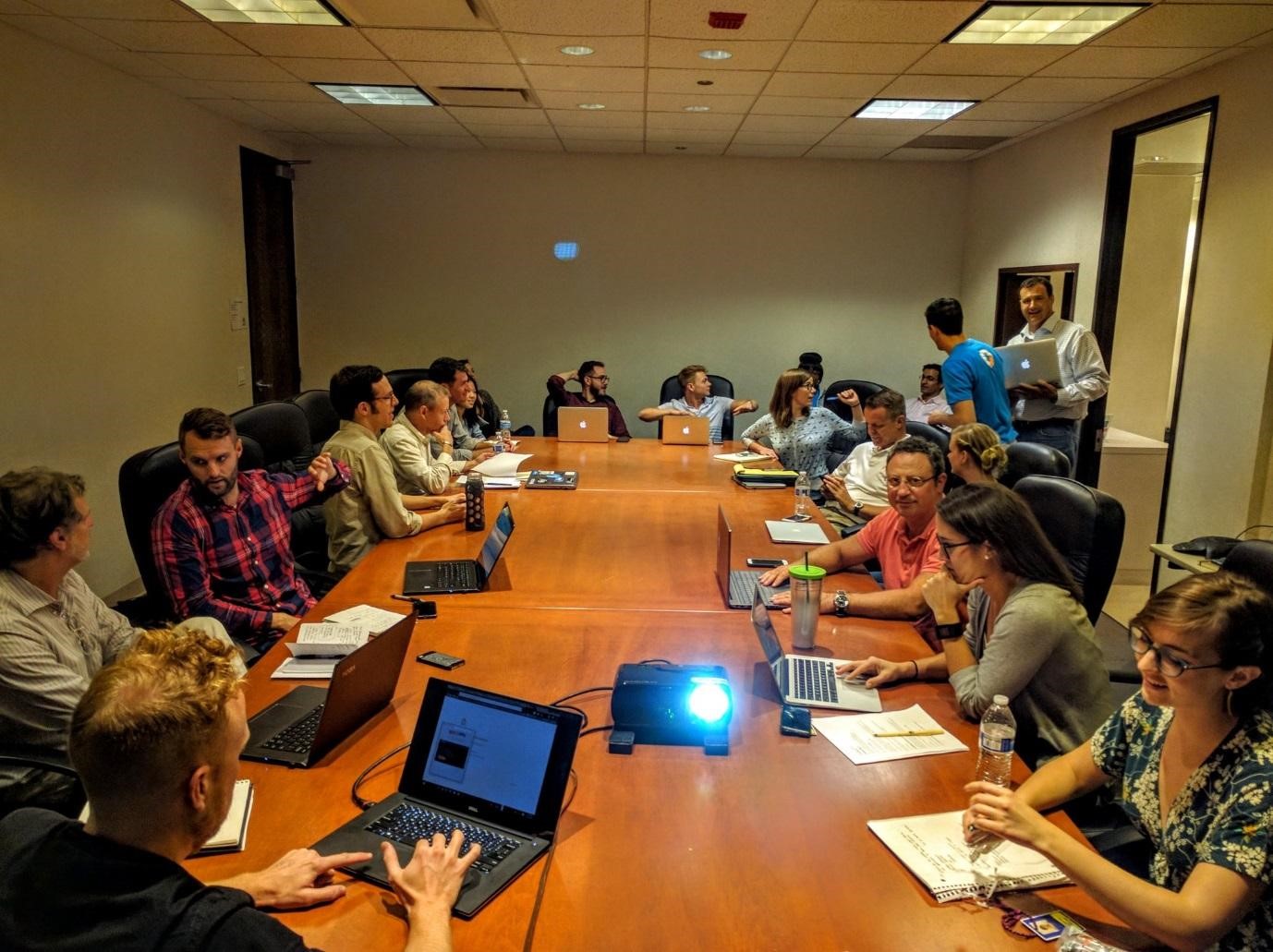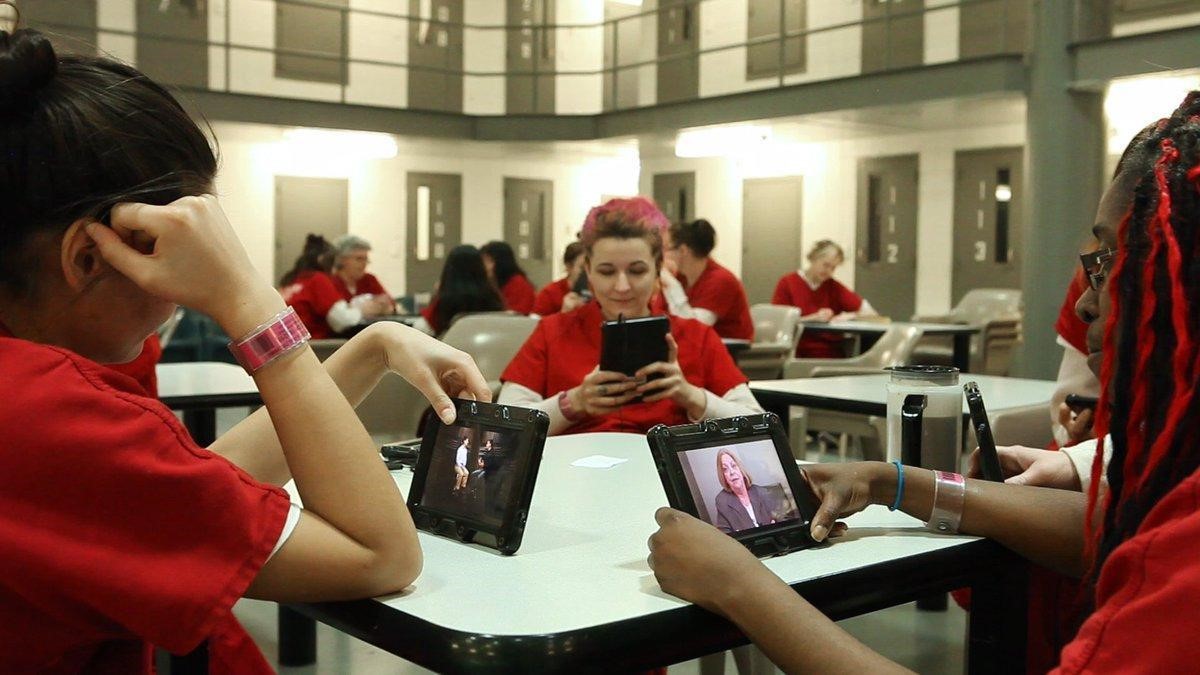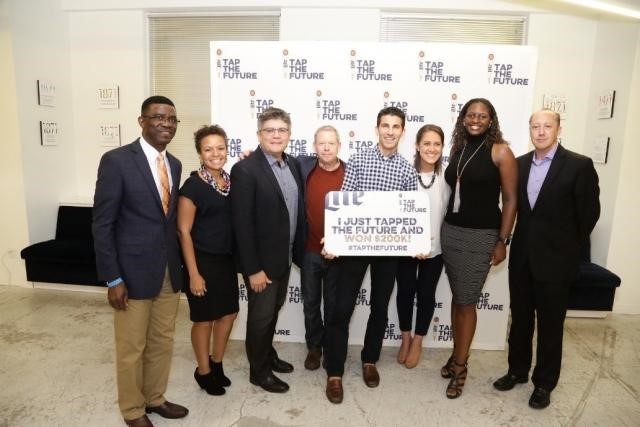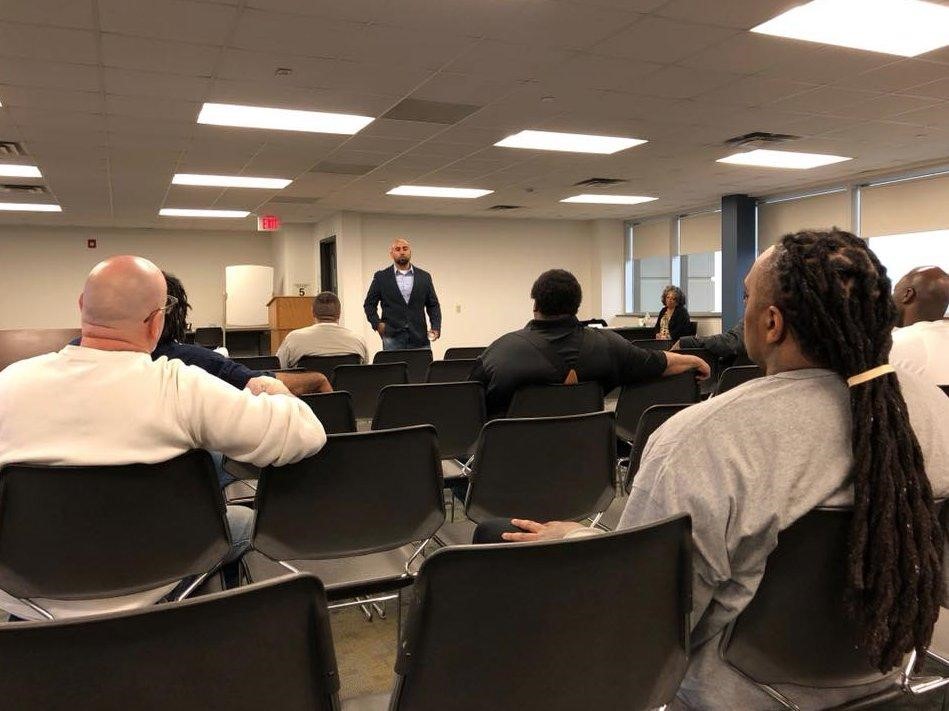The United States has the largest incarcerated population in the world with over 2.17 million (2015) people. Recidivism, or the tendency of a convict to relapse into criminal behaviour, is a major challenge for the justice system. A 2016 report by the United States Sentencing Commission found a 49% rearrest rate with a median time to rearrest of 21 months among its study group. Factors such as age, criminal history and educational level were found to be strongly correlated with recidivism. With over 54% of the population in federal prisons below the age of 40, rehabilitation and subsequent reintegration into society is very critical in the entire process. Education enables that and more.
This is where Edovo (formerly Jail Education Solutions) comes in. Edovo, Education Over Obstacles, provides high quality educational, vocational and treatment content on a daily basis to incarcerated people to help them prepare for their post-release lives. Edovo provides inmates with an opportunity to effectively utilize their prison time by spending it on learning and self-development. The entire content service is targeted at customers in the correctional system – prisoners and post-release population.
The origins of the idea of working with inmates go back to the founder’s childhood. Brian Hill, founder and CEO, was influenced by his father’s teaching work with inmates at Folsom Prison. His father used to teach psychology and college success. After work, his father would read out the assignments written by inmates to his children. It showed the hidden aspirations and hopes this population had. Following his father’s footsteps, Brian started Jail Education Solutions during his first year at law school in 2013.

Brian Hill, Founder and CEO, interacting with inmates (Source: The Impact Engine)
After initially starting off with a pilot project back in 2013 in Cook County where they made television programs, they realized that such content needs to be individualized to be more effective. In 2014, they developed the tablet-based approach to deliver the content and the pilot project was launched in Philadelphia. Based on the positive response they received, they began scaling up. From 7 facilities in 2015, Edovo now operates in over 50 facilities. Over 50,000 people have accessed Edovo’s content since its inception. As per their website, “75% of the population in a major American jail housing unit are using Edovo on a weekly basis, with an average of two lessons completed per day.”

Edovo team meeting (Source: Edovo)
The content provided by Edovo includes vocational interests, General Education Development (GED), religious material, parenting material, cognitive behavioural therapy, legal information, health and wellness, etc. The content is both, created in house as well as with experts providing the best evidence-based content. The service balances learning and entertainment. Upon completing portions of the educational content, the inmate earns certain points that could be used to access entertainment content. The content is delivered via a customized 7-inch Samsung tablet in order to address security issues that may arise. There is a closed secure wireless network that is installed in the facility that enables the tablet to access the Edovo platform.

Inmates working on Edovo tablets (Source: Edovo)
Edovo operates in the ‘sustainable solutions zone’ at the intersection of a major social problem and its possible solutions, making its potential impact significant. Research projects undertaken at various points in time emphasize on the positive impact in-prison correctional education has on recidivism, in-prison violence and post-release employment. With Edovo, the incarcerated have the resources required to shape their post-release lives and continue the learning and development process. Apart from working on the cognitive aspect, there is also an immediate impact on the atmosphere in the facilities. For example, introducing the tablet in a maximum-security facility in Arkansas had a marked impact on the behaviour of the inmates resulting in the segregated population being released into lower security environments.
The revenue model was initially based on inmates renting these devices from the commissary. The commissary and telephone services markets are sized at over $2.9 billion. Other possible revenue streams include facilities directly providing these to the inmates, phone service providers providing this is as an additional service and limited advertising of those services required by inmates. It is important to note that Edovo charges for the tablet and not the courses/content.

Edovo team with Tap The Future judges after winning the $200,000 grand prize (Source: Rolling Out)
The team has been active in the start-up ecosystem participating in various accelerator programs, winning competitions and grants. As JES, they got a boost from a Chicago-based incubator, Impact Engine, and were one of the few companies to complete FastFWD, an entrepreneurship accelerator. They have received grants from the MacArthur Foundation and the Chicago Community Trust.
In 2016, they raised $2.3 million in seed money from The Impact Engine, Alan Mathew and Kapor Capital. After receiving $250,000 from Twilio in February 2018, Edovo raised $9.3 million in April 2018 as a part of its Series A from 8 investors such The Impact Engine, Kapor Capital, Lumina Foundation. They plan on deploying the funds to scale up operations.

Edovo team member addressing people at the Davenport Work Release Center (Source: Edovo)
With low entry barriers, competition is a challenge. One segment of competitors is universities and non-profits such as the Prison University Project that primarily adopts human interaction as a medium to communicate content. This makes scaling a challenge for them. The target population that these groups focus on is also different, with services being focused largely being on higher education.
The other segment of competitors is corrections-related service providers such as JPay and GTL who are in a better position to leverage their existing products or introduce new products on similar lines. They already have existing education platforms and tablet distribution networks in place. In one move, JPay has been able to provide free tablets to a population larger than what Edovo has serviced since its inception. These tablets enable communication with friends and family as well as provide other entertainment content, services that Edovo doesn’t provide yet.
Edovo’s service has tremendous potential to solve a major social problem. While its competitive advantage is in its content, pricing mechanism and post-release access, competitors with similar platforms and greater financial resources pose a serious threat.
Subscribe to our newsletter



